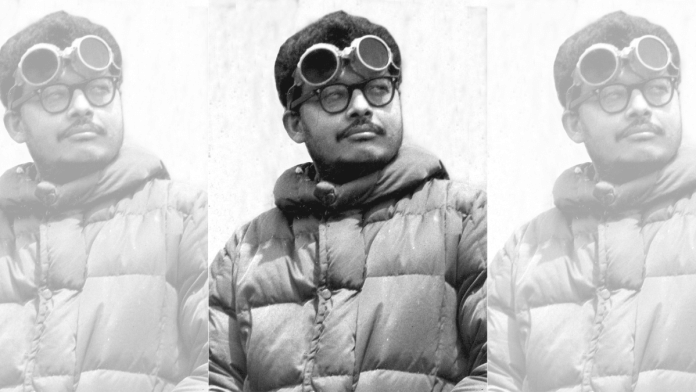Thank you dear subscribers, we are overwhelmed with your response.
Your Turn is a unique section from ThePrint featuring points of view from its subscribers. If you are a subscriber, have a point of view, please send it to us. If not, do subscribe here: https://englishdev.theprint.in/subscribe/
At a programme to commemorate birth centenary of Gourkishore Ghosh, one senior journalist in Bengal was reminiscing, that when he recently asked an aspiring journalist in a job interview to say something about Gourkishore Ghosh, after a tortured pause the otherwise smart candidate could barely murmur, I think…..ummm….he was a great footballer! This reply would have surely tickled the fancy of Gourkishore who loved to poke fun at his surrounding reality including himself.
The young man can’t be really blamed. As a society we have indeed forgotten people like Gourkishore who had so valiantly fought to protect the freedom of press. But it is high time we bring their memory back when the glorious tradition of impartiality and independence of the press is under siege.
Gourkishore came from a very humble background. His wandering father left the family when he was in his early teens. This forced him to quit studies and take up odd jobs like electric fitter, waiter in small eateries, sailor, manager of dance troupe, treasurer of trade union and so on. He started writing by sheer happenstance. When he was working in a press as proofreader one day the owner of the press asked him to write a short piece to fill up a blank space of a journal that had to be filled immediately. The hungry young man agreed to come to the rescue act against the promise of a plate of bread and egg omelette. But once the piece was published it was an instant hit. It was one of those magnificent moments when the profession had chosen the person rather than the other way round. Soon he joined the daily newspaper ‘Satyajug’ of the Times Group and then there was no looking back. His talent was spotted by AnandabazarPatrika, the largest publishing house in Bengal and one of the premier in the country and this helped him and his family come out of the miseries of poverty. His columns in Anandabazar and its literary organ ‘Desh’ started creating ripples both in the journalistic and literary circle alike. His lively and loving persona, infective enthusiasm, wide ranging interests helped him win friends of all types – the influential, the intellectual or the impoverished.
Gourkishore was an ardent humanist who believed in nonviolence. Those were the heydays of the extreme leftist movement (more commonly known as Naxalbari) in West Bengal. Though Gourkishore was in all sympathy of the poor and downtrodden he despised violence in any form even in the name of noble cause. Despite death threats from the militants, he continued his no holds bar criticism of their policies. Couple of anecdotes on his response to threats merit mention.
One day while stepping out of his home he checked the letter box and found a ‘death sentence’ issued by a militant organisation which earned defame for merciless killing. Instead of going to the police or to his office for protection he straight drove to the headquarters of that militant organisation. He entered the office with a smile – “I received a letter from you today, so I decided to see you”. The militants apparently thought that he must have brought police with him and summarily fled their own office. In another incident, one evening, chased by policemen, two Naxalite youths barged into his home and begged for refuge for the night. They were known adversaries who had Gourkishore’s name in their hit list. Yet, Gourkishore ignored the security risk to his family and allowed them to stay as they were running for their life. They stayed on for several days and under his calm influence shunned the path of violence and joined Gandhi ashram at Sabarmati.
His act of courage was not directed against the non-state actors only. On 25th June1975, when national emergency was promulgated, Gourkishore Ghosh shaved his head and donned mourning attire, visited Writers Building, the seat of power in Bengal, and announced that he was mourning the death of democracy which is no less dear to him than his own mother. He openly opposed the emergency and was arrested under the notorious MISA. Given the two choices – either support the emergency and enjoy governmental patronage including awards, foreign tours etc or face the consequences, he decided to listen to his inner voice. His letter to his son from the prison and ‘Let me have my say’ is part of anti-emergency folklore. He conferred Magsaysay award in 1981 for courageous journalism
On the eve 49th anniversary of the day of promulgation of National emergency, this fearless defender of democracy and journalistic rights deserves remembrance whose reassuring voice still reverberates – “remember one thing, real or unreal, fear is just fear, never allow it to submerge your conscience.”


